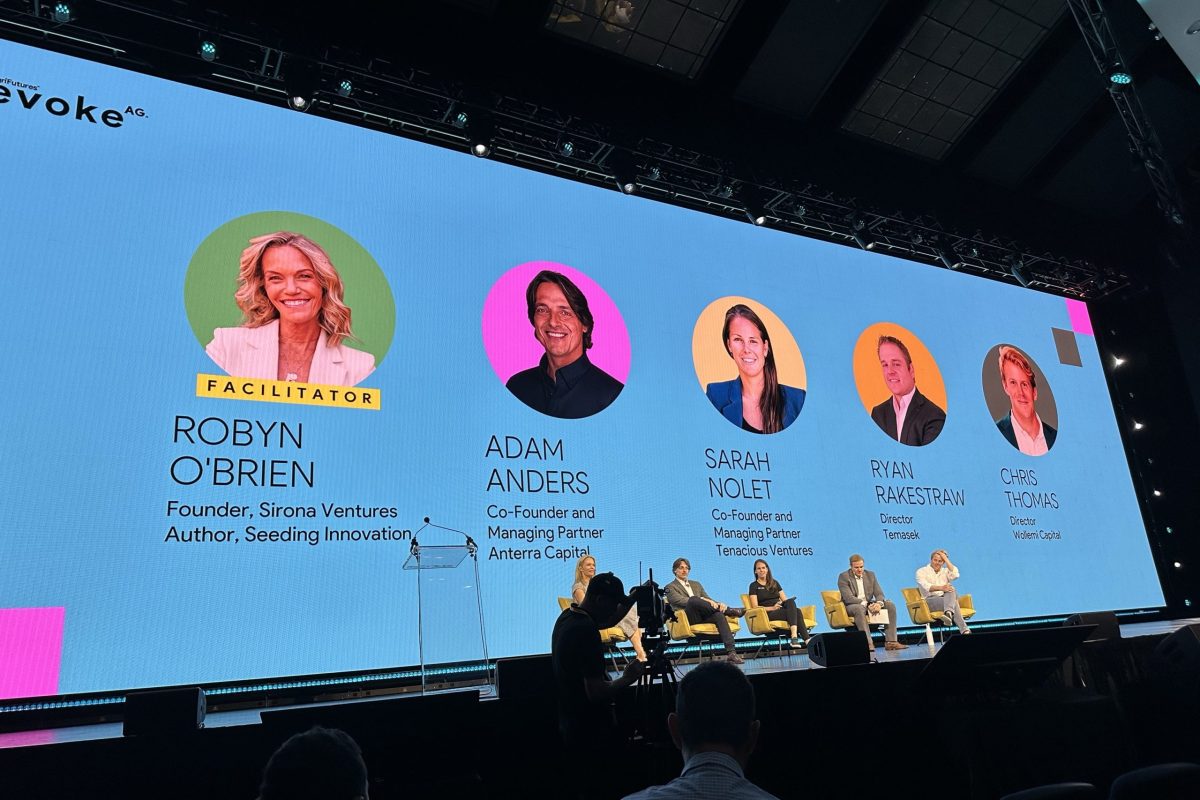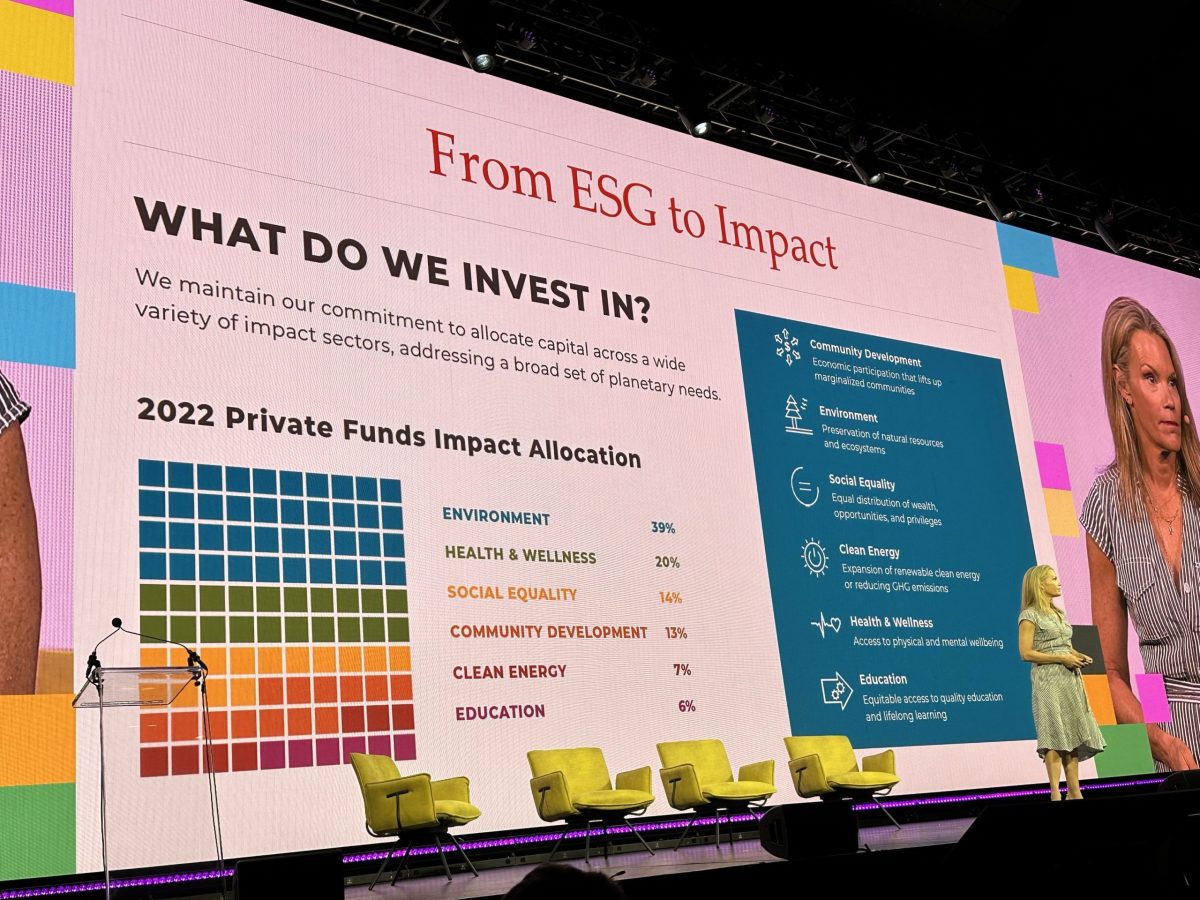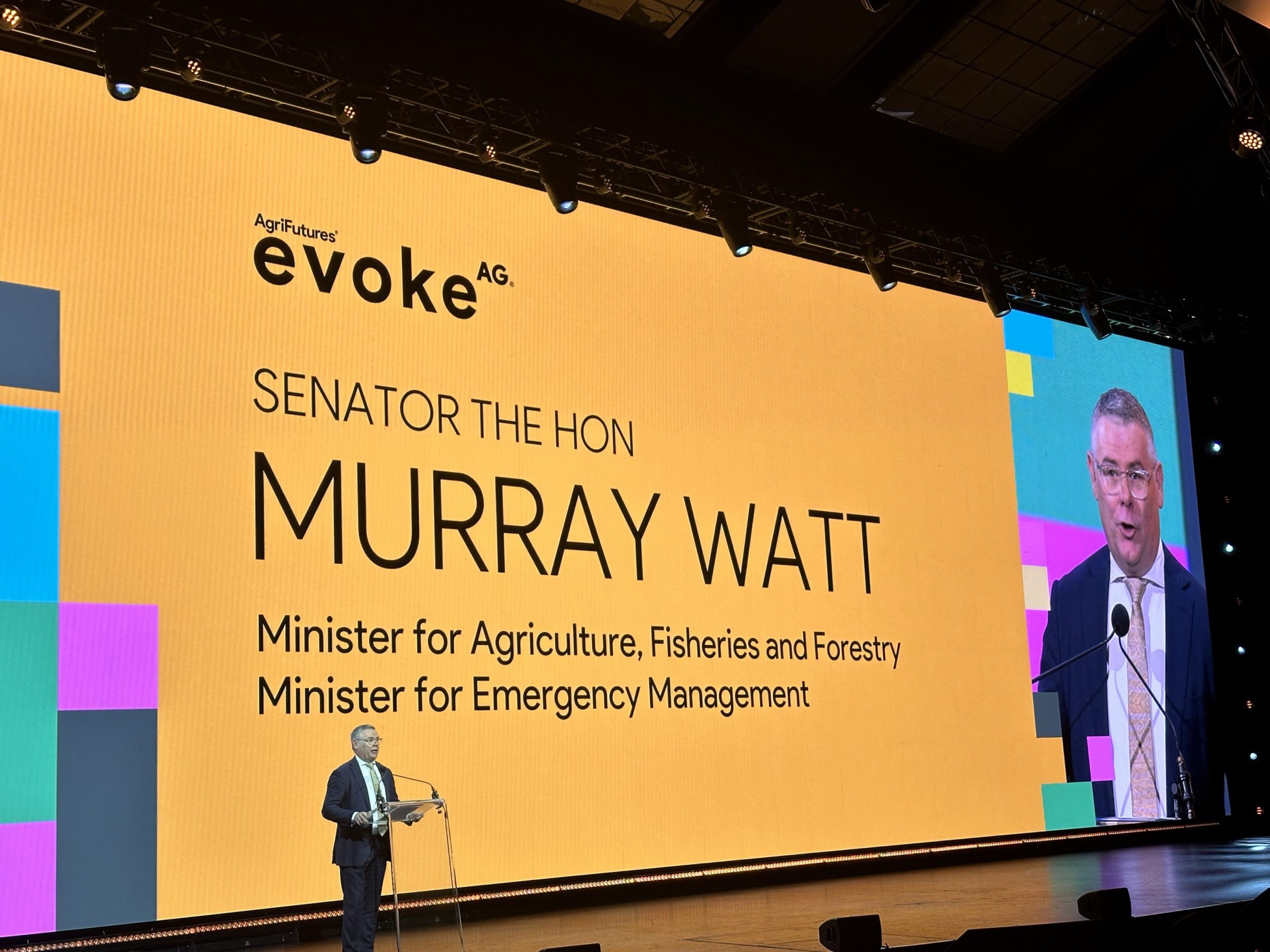The two-day evokeAG conference at Perth Convention & Exhibition Centre was a mix of plenary and panel sessions.
Attendees on Day 1 heard from a flotilla of government and industry leaders, farmers and academic experts about how AI and automation might transform the ag sector, how the mining and ag sectors might work better together’; and using tech to streamline and secure supply chains and to reduce food loss and waste. Day 2 offered sessions on reducing farm emissions; natural capital; attracting customers; Australian ag-tech exports; respecting cultural IP in Indigenous-western partnerships; the investment climate for ag-tech and more. All the bases were covered including nods to environmental responsibility, emissions reduction, natural capital and respect for cultural IP.
A scattering of inspirational agripreneurs invigorated a line-up peppered with big names in government and industry, delivering speeches long on ‘ra-ra’ rhetoric but too often, lacking concrete detail on best ways forward.

Agri-tech entrepreneurs Olympia Yarger and Justin Webb discuss why Aussie agripreneurs often fly under the radar at evokeAG with facilitator Bryce Ives (centre), Founder and Principal of YoBou. Credit: Future Food Systems
Turning challenges into opportunities
In a session titled ‘Innovation and collaboration: Solving Western Australia’s agriculture and food challenges’, Dr Ben Biddulph facilitated a lively chat in which Dr Ben Biddulph, WA’s Chief Primary Industries Scientist, urged the panel, representing key WA agribusinesses, to delve into some pressing issues facing the state’s food and agriculture industry. Together
In ‘The Great Exchange’, Olympia Yarger, founder-CEO of Goterra, and former Brit, Justin Webb, co-founder and Executive Chairman of AgriWebb, an ag-tech SaaS company that manages over 20 million livestock across 150 million acres with $50 billion in agricultural assets, had a refreshingly frank discussion about the mismatch between Australia’s world-class agri-tech innovations and their comparatively poor standing on the global stage. Both lamented the fact that Aussie producers are typically their own worst self-promoters – and that due in part, at least, to this self-deprecating stance, many of our best and brightest end up going offshore to get the recognition, funding and success they deserve.
A session on turning WA’s agrifood-sector challenges into opportunities for collaboration and innovation, helmed by WA DPIRD Chief Agricultural Scientist Dr Ben Biddulph, provided plenty of food for thought. DPIRD Principal Soil Scientist Dr Gaus Azam emphasised the opportunity around solutions enabling 3D-4D soil management in a state with diverse and depleted soils. Grain-grower Ty Fulwood stressed the gains to be made from working with research bodies such as GRDC, which he said upped his yields 40% over eight years of trials; overlaid with modern farm management tools, this could “potentially triple your profit margin”, he said. Fulwood also noted significant opportunities to create new products, including tools for monitoring and managing soils, and farm management software.
Yarrie Station’s Annabelle Coppin, founder of Outback Beef, delivered a long list of tech-enabled tools she’d love to deploy for better rangeland management: smarter unmanned drones to do everything from controlled burns to mustering to ‘tool drop-offs’; remote pasture monitoring; smart monitoring of livestock health and nutrition in the field; virtual fencing; tools to measure and monitor water flow and biodiversity; smart tags that track cattle in real time; better pain relief for livestock; and more. She also noted the need for better marketing around provenance stories and points of distinction.
And Dr Jo Wisdom, Innovation Manager for the WA-based Grower Group Alliance (GGA) and Manager at Plantagenet Wines, stressed the need for technology to help us understand the impacts of elevation, leaf layer, soil variation and grapevine balance on on winegrape quality and yield, noting that “the hard part is making all this data meaningful, to make it worth the cost” and that back-up service support is critical: “We have all these metrics, but we want these to be automated, simple, and serviced”, she said.
Throughout evokeAG, value-adding was a hot topic, with innovations on show including some clever circular solutions for food and agricultural waste – solutions Future Food Systems applauds.
We also heard from some terrific Indigenous groups about their successful collaborations, some with western innovators – including the Spinifex Brewing Co, a Food Innovation Precinct Western Australia (FIPWA) tenant and our neighbour at the just-launched, state-of-the-art Sustainable Innovative Food Technology (SIFT) facility. That said, all concurred that challenges persist for Indigenous value-adders, mainly around ensuring consistent supply chains for native ingredients, and cultural IP.
Future Food Systems participants who think they might be able to solve s0me pain points for WA’s agrifood producers should bring their bright ideas to FFS’s Research & Commercialisation Director, Professor Cordelia Selomulya, or to CEO Dr James Krahe, in the first instance.

A panel session on Venture capital and Australian agri-tech at evokeAG 2024. Credit: Future Food Systems
Funding frustration: Convincing investors ag-tech that backing innovation can deliver healthy ROI
Funding – or the lack of it – was a prevalent theme at this year’s conference, with innovative start-ups and scale-ups alike voicing frustration at the modest financial support offered by corporates and government agencies in Australia, especially relative to the incentives offered to ag-tech innovators in other western nations. By way of example, one panellist in Day 2’s afternoon plenary, ‘Pooling our resources towards a collaborative investment landscape’, noted that the UK Government had just pledged £220m (AU$426.5m) in funding to advance robotics and automation in Britain’s agricultural sector as part of a £427m (AU$828m) package , while the Australian Government has committed just $20m (in 2021) to develop farm-focused AI and automation tools for an ag sector that is around three times the size of Britain’s.
The speakers and panellists in Day 2’s sessions on the changing role of venture capital in agrifood technology, innovation and enterprise represented what might be called the ‘new face’ of investment: those who recognise the value that can be reaped by backing solutions that boost efficiency, productivity and sustainability in today’s – and tomorrow’s – agrifood sector. Panellists – facilitated by Sirona Ventures founder, author and keynote speaker Robyn O’Brien – included Sarah Nolet, co-founder and Managing Partner of Australia’s only ag-tech-focused venture capital firm, Tenacious Ventures; Anterra Capital co-founder and Managing Partner Adam Anders; Ryan Rakestraw, Director of Singapore-based firm Temasek; and Chris Thomas, Director of specialist climate investment firm Wollemi Capital.

Robyn O’Brien, founder of Colorado, US-based Sirona Ventures and author of Seeding Innovation: The Path to Profit and Purpose in the 21st Century, speaks about the need to invest in smart, sustainable. socially conscious ag-tech solutions at evokeAG 2024. Credit: Future Food Systems
All the panellists concurred that investing in Australian tools and tech that help farmers ‘produce more with less’ is a good bet: such innovations often reap their backers serious ROI, considering potential sales of both the products and the IP. And if more funds were available to our world-class agripreneurs, one panellist contended, this would reduce Australia’s brain drain.
Our takeaway? More and better-targeted funding would enable Australia’s ag-tech innovators – widely acknowledged as among the best in the world – to deliver smarter, speedier solutions to global challenges. It would encourage more collaborative research into people- and planet-friendly systems for food production and supply. We at FFS believe that by working collaboratively, we can deliver smart, simple, cost-effective solutions to agrifood-sector challenges that have real-world impact. Moreover, for those who invest wisely now, there’s real opportunity for big returns.
Lead image: evokeAG conference sessions were a mix of plenary and panel sessions, covering a broad range of ‘hot topics’ in ag-tech. Here, Senator The Hon. Murray Watt, Minister for Agriculture, Fisheries and Forestry and for Emergency Management, gives an official opening address on Day 1. Credit: Future Food Systems


